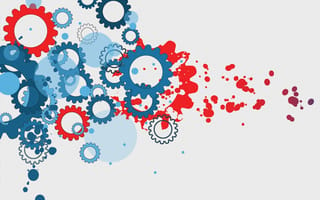Change happens often in the field of software development; the key differentiator is how you respond.
When faced with challenges resulting from rapid growth, mobile gaming company MobilityWare needed to adapt. As a result, Senior Director of Technical Operations Lance Kim worked with others at the organization to build out a site reliability team that could help them keep up with constant changes.
“As our company matured, we saw a need to create a team dedicated to supporting critical business infrastructure, services, products and processes,” Kim said. “Eventually, we realized that a site reliability team encompassed what we needed to elevate the company in the present and help us reach new heights in the future.”
According to Kim, site reliability has rendered a number of benefits for the company so far, including the enhanced satisfaction and output of the organization’s product engineering teams. And behind their accomplishments exists individuals with a wide range of talents. When it comes to the types of engineers needed on site reliability, Kim said soft skills are just as important as technical chops.
“We search for individuals who demonstrate a knack for communication, passion for collaboration, expertise in customer service, a willingness to learn and a keen eye for details,” he said.
Built In LA caught up with Kim to learn more about why the organization created a site reliability team, its impact on the organization and the skills that define strong engineers.

What improvements resulted from building out a site reliability engineering team, and what advice would you offer those interested in doing the same?
As we implemented the team, we focused on two main objectives: Serve others to enable their success, and build trust. Through these fundamental goals, we’ve enhanced the overall satisfaction and output of our product engineering teams, reduced our time to resolution, and improved our outage incident counts.
If other organizations take this approach, they should be prepared to have honest conversations, be more transparent and leave their egos at the door.
Other organizations taking this approach should prepare to have honest conversations, be more transparent and leave their egos at the door.”
How is your team structured, and what skills do you look for in engineers?
Our team structure is fairly flat, with several engineers reporting to one manager. With that in mind, engineers are encouraged to take ownership of domains based on their knowledge, experience, skills and interests. While technical expertise is essential, we’re also looking for engineers who have mastered a comprehensive suite of soft skills. Most importantly, we look for those who embody our company’s core values: “do the right thing,” “own it,” “be passionate,” “be empowered,” “be adaptable” and “stay hungry.”







